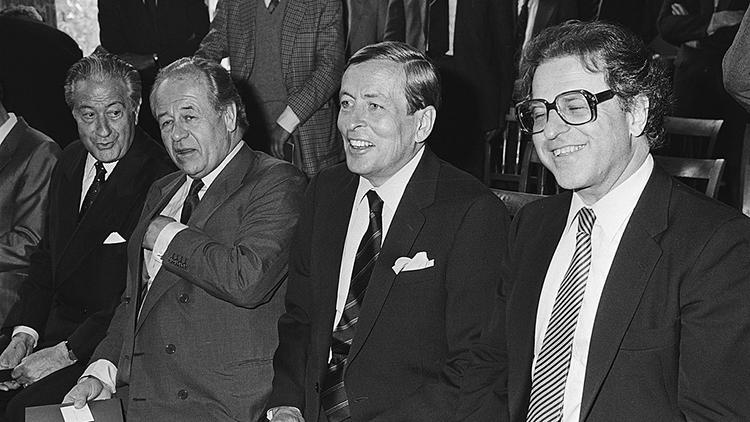UU professor defends it
Controversy surrounding the Heineken prize

Last summer, the Royal Dutch Academy (KNAW) announced its decision to stop collaborating with the biennial Heineken Science Prize due to Heineken's presence in Russia. The journalistic platform Follow the Money revealed that the company has recently launched dozens of new products in Russia, while other companies have left the country following the invasion of Ukraine. Heineken has since left Russia as well (links in Dutch, Ed.).
Call for
The scientific prize still exists, despite KNAW's absence. A call for applications at Radboud University, in Nijmegen, appalled Klaas Landsman, a Professor of Mathematical Physics. He told the university magazine Vox that he was "shocked".
Landsman is a member of the Royal Academy, as well as a winner of the Spinoza Prize, the most prestigious scientific prize one can win in the Netherlands. He was already critical of the Heineken Prize before the invasion of Ukraine, because of how harmful alcohol can be to someone's health. In an op-ed published in the NRC newspaper, he stated that KNAW shouldn't allow itself to be used as an advertising stunt.
Tradition
But one of the members of the panel of judges is also a member of the Royal Academy. That's Albert Heck, Professor of Chemistry and Pharmaceutical Science at Utrecht University. He is involved with the Heineken Prize for Biochemistry and Biophysics "in a personal capacity".
Next year, the Heineken Prize will celebrate its 60th anniversary, writes Heck in a reaction to the critics. "The prize honours scientists whose research in the fields of Biochemistry and/or Biophysics is outstanding. As a biochemist, I've always treasured this prize and its laureates."
He doesn't want to let go of tradition. "Throughout 60 years, this prize has been given to excellent scientists, so much so that it has been nicknamed 'the Dutch Nobel prize'. Therefore, the prize is highly appreciated not only in our country but also abroad."
Foundation
Moreover, Heck advises not to mistake the Heineken Foundation, which finances the prize, with the company. "I do not support some of the group's activities either," he writes. But he finds that the Heineken Prize has always been positive for his field. He also appreciates that the foundation pays attention to science and invests money in it. He would like to see "other philanthropists, foundations, companies and the government doing more to support science."
Addressing the critics, he writes: "Unfortunately, KNAW members are polarised regarding the Heineken prize, which I find very unfortunate. Ik would prefer to see the Heineken Prize make a comeback in the future under the auspices of the Royal Academy and with even more support, not only from the Heineken family but also from other foundations, philanthropists and companies."
The chair of the jury of the Heineken Young Scientists Awards, UMCU Hester den Ruijter, used to be a member of The Young Academy, a society of young scientists affiliated with KNAW.
Free to join
KNAW prefers not to comment. "Our members are free to join the panels formed by the Heineken Foundation," states a spokesperson. "We're not involved with that." Participating in these panels "has no consequences at all" for their future KNAW membership.
The Heineken Prizes amount to 250,000 dollars (230,000 euros), handed out every two years. Now that KNAW has pulled out of the awards, the prize is "in a transition phase", which is why only two winners will be announced in 2024. The prizes for Art, Medicine, History, Environmental Studies, and Cognitive Sciences will only be awarded in 2026.
In Nijmegen, there are still talks about collaborating with companies, a spokesperson is quoted by Vox as saying. This could have consequences for their collaboration with the Heineken Prize. "The Executive Board welcomes a critical discussion about this topic."
Other Dutch universities have also been debating about whether or not to team up with companies, such as those in the fossil fuel industry. Decisions in that regard could influence their participation in sponsored prizes such as the Heineken Prize.